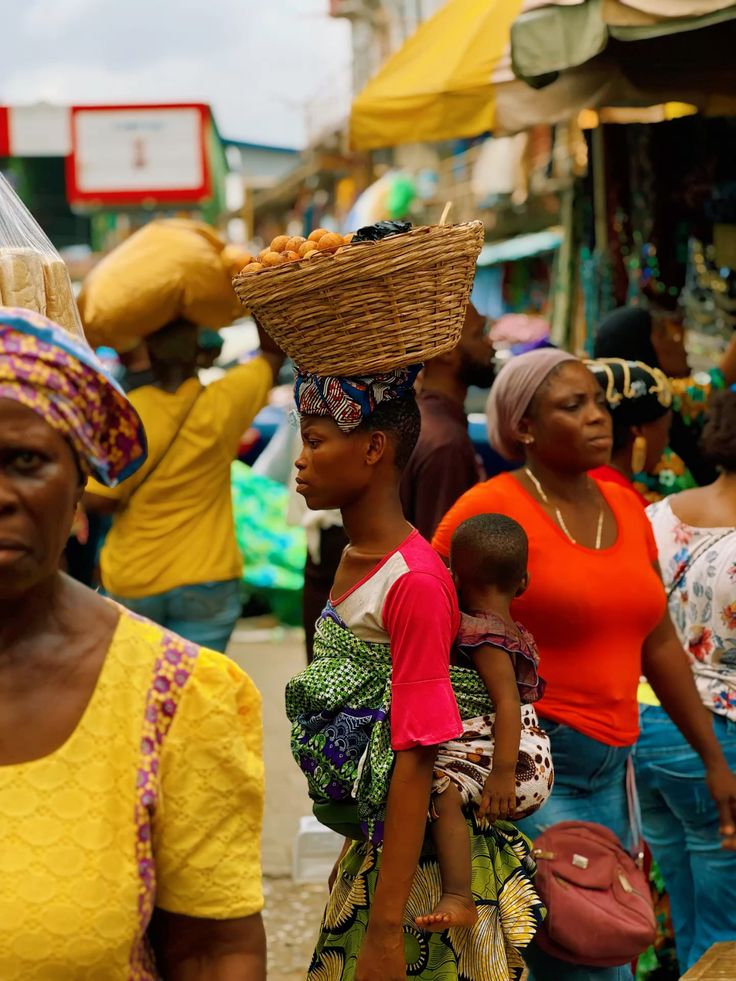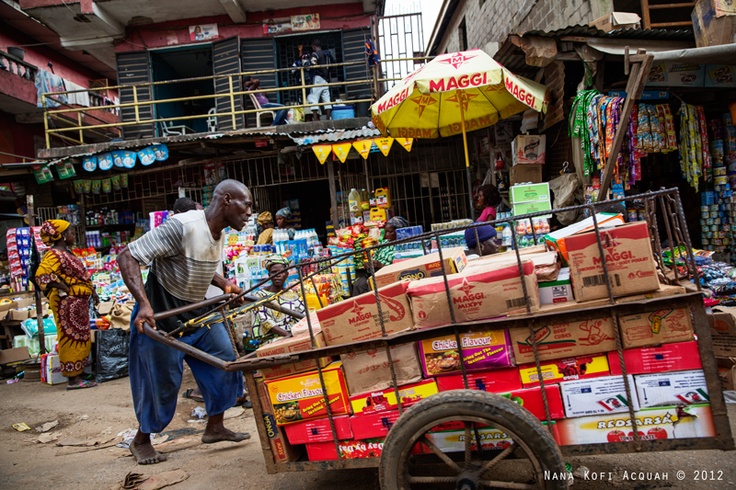In Igboland, the market was not just a space of exchange, it remains the heartbeat of the people. To enter a market square was to step into a living drama where faith, rhythm, and commerce fused into one. The Igbo had no kings in the conventional sense, but they had markets that ruled their lives with authority, order, and sacred presence.
The market was an engine, fueled by three powerful forces: ritual (belief), rhythm (structure), and trade (exchange). Together, these forces did not merely sustain a people, they defined what it meant to be Igbo. As the elders say:
“Ebe onye nọ ka ọ na-awachi” — It is where one lives that one sustains.
The Igbo sustained themselves by sustaining their markets.
Rituals and Sacred Meanings of Market Days
Every Igbo market was born with a soul. It was not simply opened; it was consecrated. At its heart stood shrines, to Ala (the earth goddess), to ancestors, or to protective deities, whose presence made trade not only lawful but sacred. Cheating in the market was an offense to both man and spirit.
Market days were often chosen in consultation with diviners, aligning commerce with cosmic order. Some markets forbade fighting, bloodshed, or even certain types of transactions on particular days. These were not “rules of convenience,” but spiritual codes that bound the people.
The market was also a place of ritual renewal. Sacrifices were offered for peace and abundance; oaths were sworn to ensure honesty in trade.
The Four-Day Rhythm as Social Calendar
The Igbo did not count time in weeks of seven, but in cycles of four: Eke, Orie, Afor, Nkwo. Each day was more than a name; it was a pulse. Villages anchored their markets to one of these days, creating a rotating network that structured not only trade but life itself.
On Eke, perhaps a man traveled to a distant market. On Orie, he rested. On Afor, he entertained visitors. On Nkwo, he joined his community in exchange. This rhythm ensured that no one market overshadowed another, and that people could move in a predictable pattern across Igboland.
The four-day cycle also marked when festivals were held, when farms were tilled, when debts were repaid, and when marriages were contracted. Life moved in harmony with the calendar of the market.

The Role of Trade and Women in Sustaining Commerce
If ritual gave the market its soul and rhythm gave it order, trade gave it life. Markets bustled with palm oil, yams, kola nuts, fish, salt, livestock, iron tools, cloth, beads, and later European goods.
At the center of this trade were women. They were the economic powerhouses; traders, negotiators, keepers of credit systems, and guardians of trust. A woman could rise in wealth and influence through market enterprise, commanding respect and authority in her community.
Women traders kept commerce flowing even when resources were scarce, using trust networks and extended credit. They were not merely sellers but custodians of relationships.
The Market as an Engine of Sustainability
What held the Igbo world together was not a central throne, but a central rhythm of life, the market engine. Ritual infused it with belief; rhythm gave it structure; trade, driven by women and trust, sustained its pulse.
Markets preserved culture, strengthened kinship ties, and created resilience. They were courts of justice, stages of music and dance, places of encounter and negotiation. A man could journey to trade, but he also came to hear news, to settle disputes, to court a wife, or to connect with kin.
The market was, in truth, an ecosystem; self-renewing, sacred, and deeply human. “Igbo kwenu!” was not just a cheer; it was the echo of a people who found strength in collective gathering.
Modern Parallels for Youth Entrepreneurs Today
The ancient Igbo market engine still speaks with relevance to the modern entrepreneur. Its three forces translate beautifully into today’s world:
- Ritual (Values & Branding): Just as markets were consecrated to deities, businesses today thrive when built on values, authenticity, and trust. Your brand is your “shrine.”
- Rhythm (Systems & Processes): The four-day cycle was a system that created reliability. Modern ventures succeed with clear structures, schedules, and predictable processes.
- Trade (Exchange & Relationships): Commerce remains about people, trust, and networks. Social capital today is what credit lines were centuries ago.
The Igbo market model teaches that successful enterprise is not about chaos, but about harmonizing belief, structure, and exchange.
“Igwe bu ike”. Indeed, there is strength in unity.
This truth sustained the markets, and it sustains entrepreneurs today.
Conclusion
To speak of the Igbo market is to speak of breath itself, a place where gods, ancestors, and mortals met in silent covenant. To lose the market was to lose a heartbeat; to honor it was to keep a people alive.
In its shrines we see faith, in its four-day cycle we hear order, and in its bustling trade we feel survival. The market was not just an economic stage, but a theater of destiny where culture, commerce, and community performed in unison.
The market was not just a place where lives were sustained, it was where the soul of a people found its eternal rhythm.
